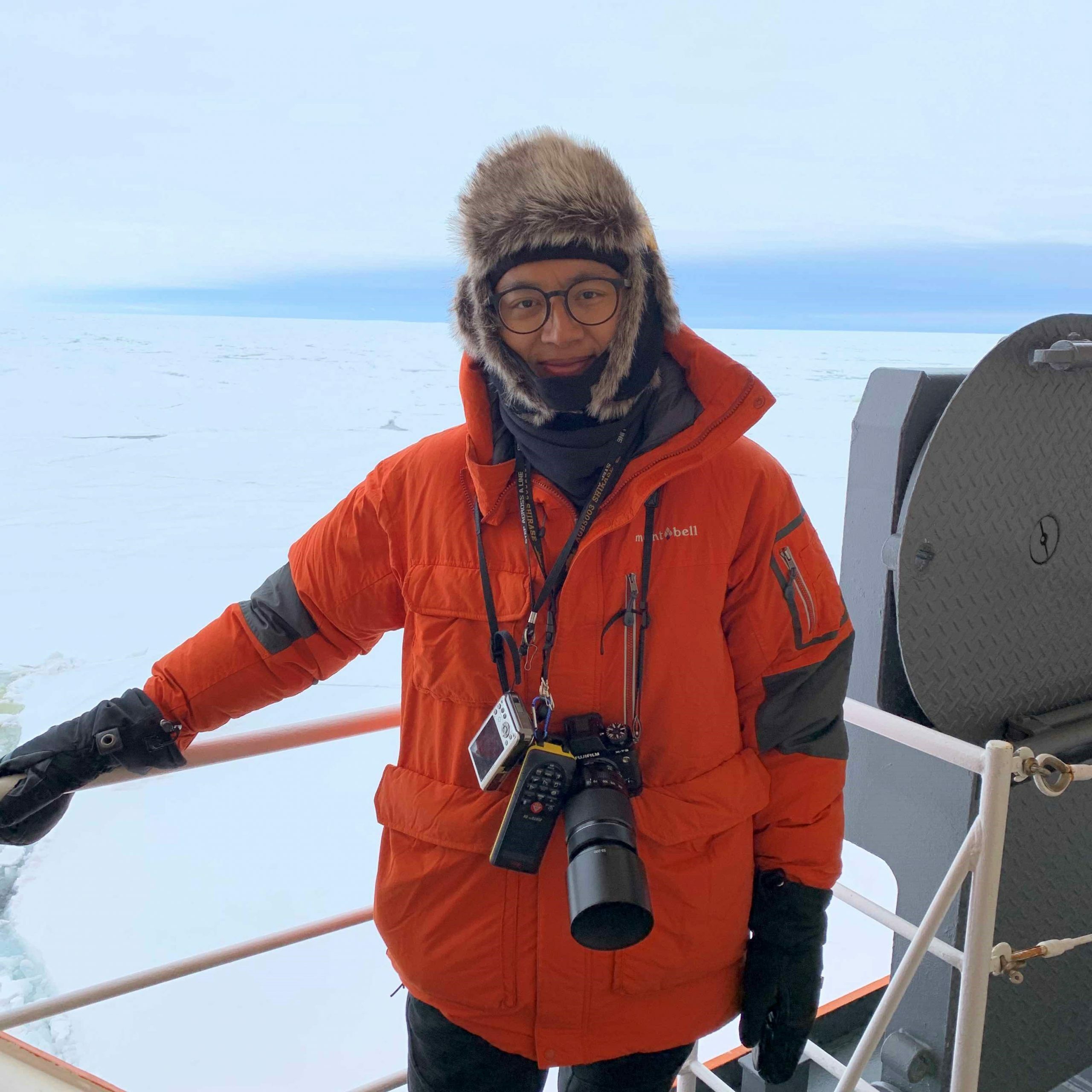Pat Wongpan
Dr Pat Wongpan is an emerging leader in the sea-ice community. Dr Wongpan’s research focuses on the physical, biogeochemical and ecological significance of Antarctic sea ice. His graduate work used field observation, laboratory experiments and computer simulation to study the structure of the porous bottom layer of landfast sea ice and its role as a biological habitat. His findings improved understanding of not only the physical properties of landfast sea ice but also its biogeochemical role in the Antarctic ecological system.
His research interests have since broadened to consider the impact of glacial meltwater on the spatial variability of sea-ice algal biomass, the role of snow processes on nutrient redistribution in sea ice, and the impact of climate change on sea-ice ecosystems and biogeochemistry. He was also instrumental in the publication of the first review of Antarctic fast ice, working with 21 experts from 11 different institutions across six countries, demonstrating his excellent record of international collaboration.
Dr Wongpan’s work is impressively multidisciplinary, with publications ranging from crystallography and platelet layer physics to measurements of sea-ice nutrient distributions and algal biomass. He strives to incorporate his research experience into public outreach. For example, his community outreach in Thailand, Japan and New Zealand involves educating groups from diverse backgrounds, from elementary students through to high-school teachers, to better understand the Earth–Ocean system.
He has expanded his outreach activities to the next generation of polar scientists by serving as the founder and coordinator of the Frontiers for Young Minds’ Antarctica and the Southern Ocean Collection. This organization aims to digest cutting-edge science for young readers to increase their understanding of Antarctica and its central role as a global climate driver.
Dr Wongpan also represented Thailand at the Asian Forum for Polar Sciences (AFOPS) at the Scientific Committee on Antarctic Research (SCAR) meeting in 2016, and has been a passionate advocate for the need to involve more diverse groups in polar research.
On behalf of the Awards Committee of the International Glaciological Society
Jeremy Bassis, Chair.

